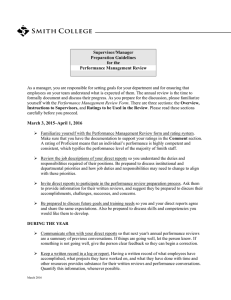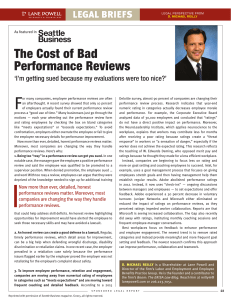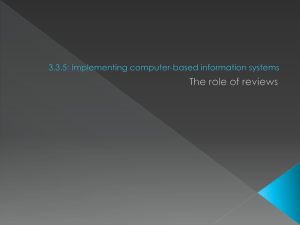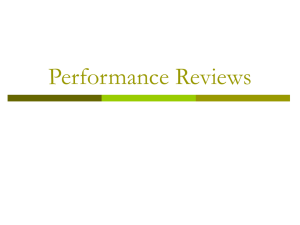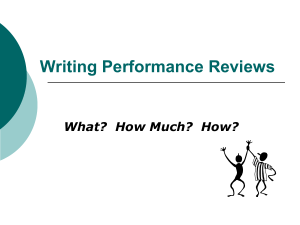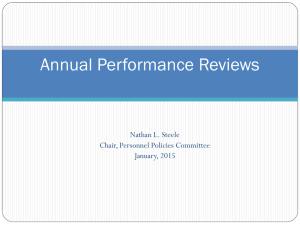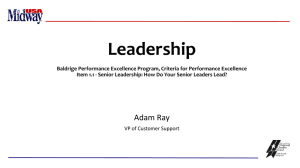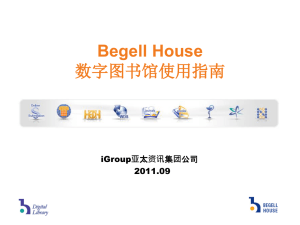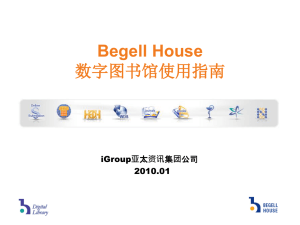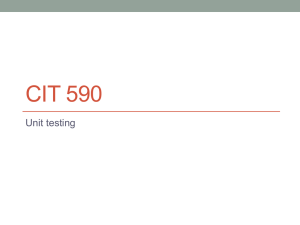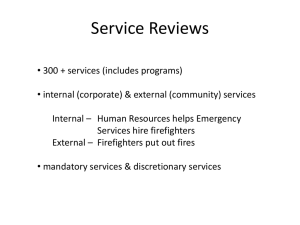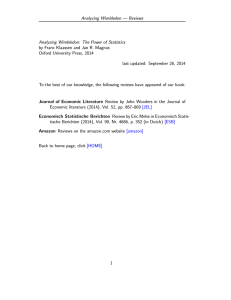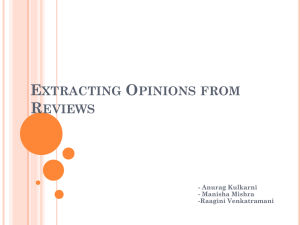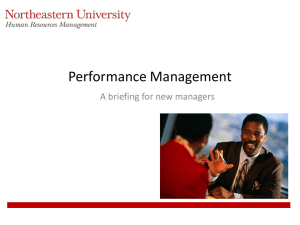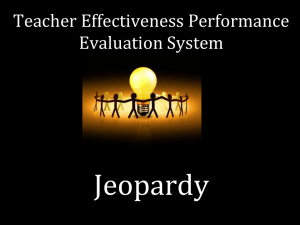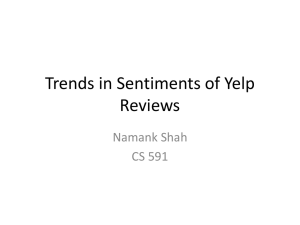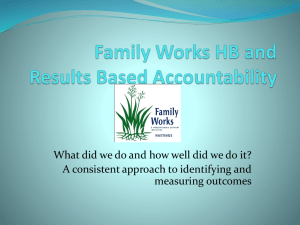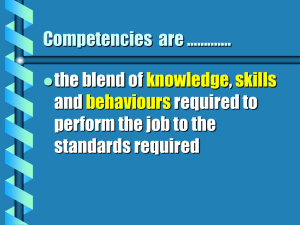Stop the Madness! Ideas for a Better
advertisement
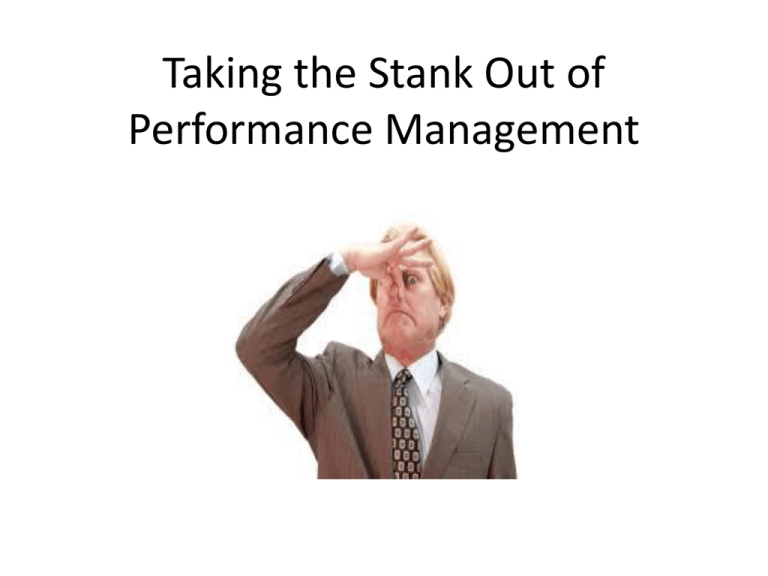
Taking the Stank Out of Performance Management A Very Brief History Originally developed for a manufacturing environment in 1911 (by Fredrick Taylor) (Fred) Brief History (cont.) Peter Drucker introduced Management-By-Objectives (MBO) concept in the 1950s (to be used to manage managers) (Pete) SMART objectives evolved from Drucker’s concept (Specific, Measurable, Achievable, Realistic and Time-Bound) So What’s Changed? The speed of everything (and the impact on time)! • Technology • Less stable, more unpredictable and ultra dynamic business environment (goals/objectives and jobs are not static) • Doing more with less resources … constantly • Workers’ loyalty and expectations (the newer generation has less tolerance for b.s.) • Company expectations - need people who can think and do their jobs with general direction (maps are disintegrating) What’s Broken? • The methodology/process … top down = dragged down • Cascading objectives – good in theory, bad in reality • Too much time and energy writing detailed objectives; learning complex software that “automates” the process • Sometimes the manager is involved; sometimes not • Objectives sit in drawers/files – dusted off at review time and often are irrelevant in a matter of months (ever hear, “We need to take a look at your objectives … now, where did I put them?”) • Once or twice a year reviews actually retard daily conversations Performance Reviews Are Coming … • At 6 months and 12 months – let the moaning, groaning and scrambling begin! • Executives, managers and employees dread it • Writing reviews feels like climbing Everest for some • Rare to have a really meaningful review meeting/dialogue • More like a break-up; let’s just get this over with The Corporate “Reality” Time Managers Spend on Performance Reviews Percent of time actually spent writing the review 1% Percent of time complaining about, fretting, and dreading the review 99% A Blueprint for a Better Way • Get support of your executive team if possible (DO THEY WANT A BETTER WAY?) • If you can’t get this, don’t give up. At least improve what you have! • You owe this to your organization • Getting this right/better could be a true competitive advantage and a way to draw “A” talent Remove the crud and start with the basics … Blueprint (cont.) • Defining Performance = What you do (Results) + How you do it (Behaviors) • Measuring “What” – assess what got done and the quality, quantity and timeliness • Measuring “How” – assess the behaviors you want • Agree, communicate and train re: how you will assess: What + How • Make it effective: simple, practical, understandable and relevant • Ensure employees know there is some level of ambiguity when assessing – that is why daily conversations and “coaching in the moment” are so vital Even Stars Need “Coaching in the Moment” Putting It All Together • Evaluate: Day-to-day responsibilities (“What”) • Evaluate: Goals/objectives if applicable; determined by job level, adjustable at any time (“What”) • Evaluate: The behaviors demonstrated (“How”) • 5-point rating scale – make it intuitive (more about this on slide 17) • Strive for a one page review format • Mostly check box with summary narrative • It’s a report card – it’s not a novel – it’s not a CYA document You may not like his “how” but his “what” is offthe-chain and I do want him on my track team! A Word About Rating Scales Make them intuitive! Stop the jibber-jabber! Decouple them from the academic grading scale – be purposeful about this, if that is what you believe The 5-Point Rating Scale • Excellent • Very Good • Good (if it is good, solid work, call it Good!) • Needs Improvement • Poor That catch far exceeded my expectations. The player went well beyond his objectives. He is highly accountable and a valued member of the organization … uh, what??? The Process • Manager receives input from others – employee’s self-rating, customer ratings, peer ratings, subordinate ratings • Manager reviews and evaluates day-to-day performance • Manager reviews and evaluates performance on goals/objectives (if applicable) • Manager reviews and evaluates “how” • Manager conducts review with employee – targeted, pinpointed conversation • Manager considers and makes any adjustments/revisions; finalizes review • Submit review to HR oversight/analysis Pay for Performance • Merit increase reflective of the rating • No forced distribution ever – most demoralizing thing you can do • Use of standard merit formula across the company – eliminates management discretion, department budgets, gaming the system, promotes fairness and consistency!!! • No more guide charts or department merit pools • Will save a ton of time, transparent and fair! Is the Pain Worth the Gain? • Gives everyone a common understanding and way to pinpoint performance discussions • Promotes daily performance management and conversations vs. waiting for “the event” • The new process is straightforward, understandable, relevant, and far less time consuming • Feedback from others is now feasible and streamlined • Saves tremendous amount of time, energy and angst • Still gets at the heart of what you want to do – effectively evaluate performance, reward best performers with pay and succeed as a business And, we can all aspire to be … Please feel free to contact me: Tim Moran TMoran Consulting tmoran728@gmail.com Two requests: 1. If you are a slow driver, stay out of the passing lane! 2. If you say you are going to follow-up with someone, please do so.
